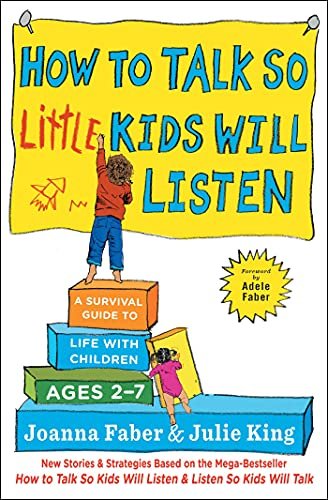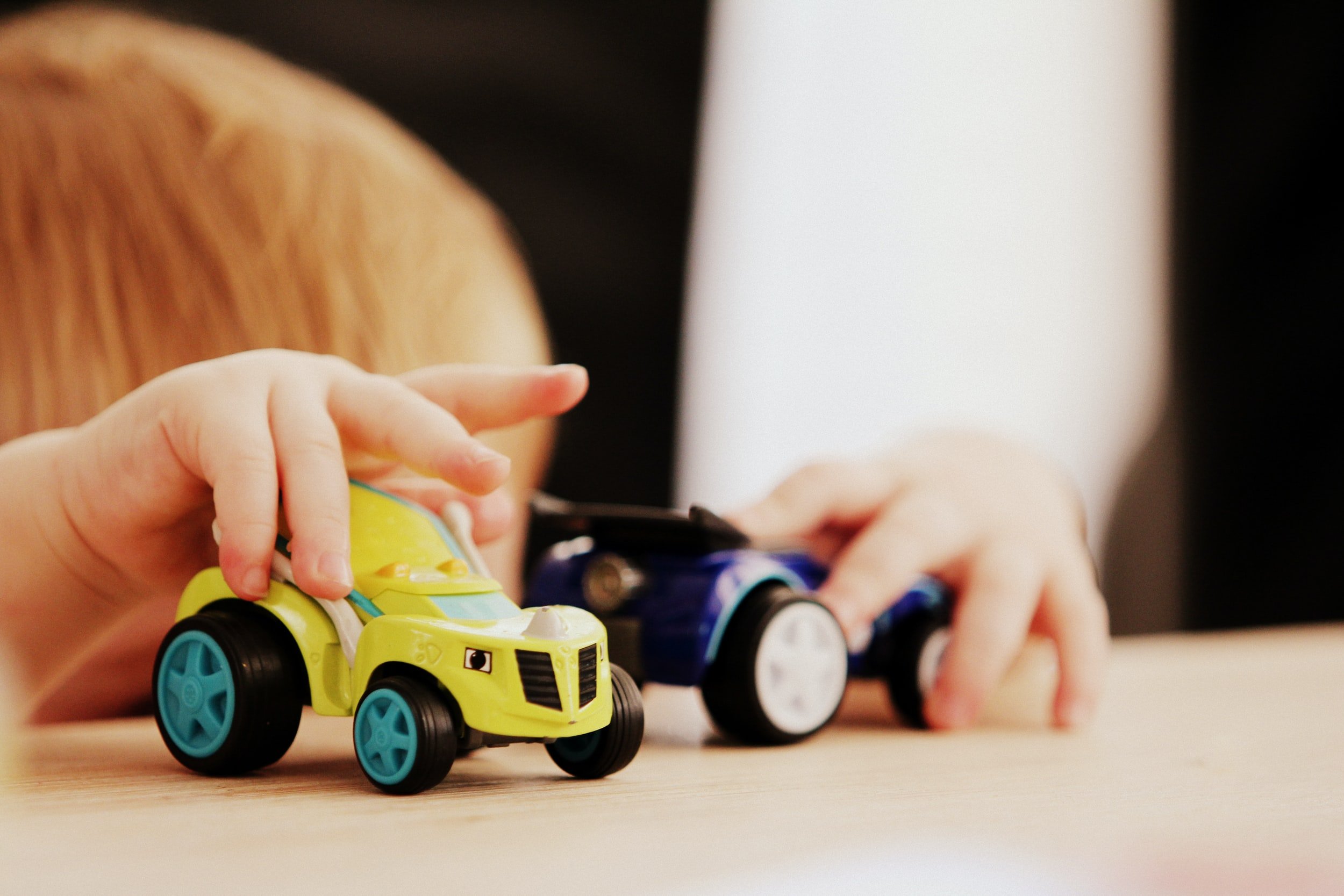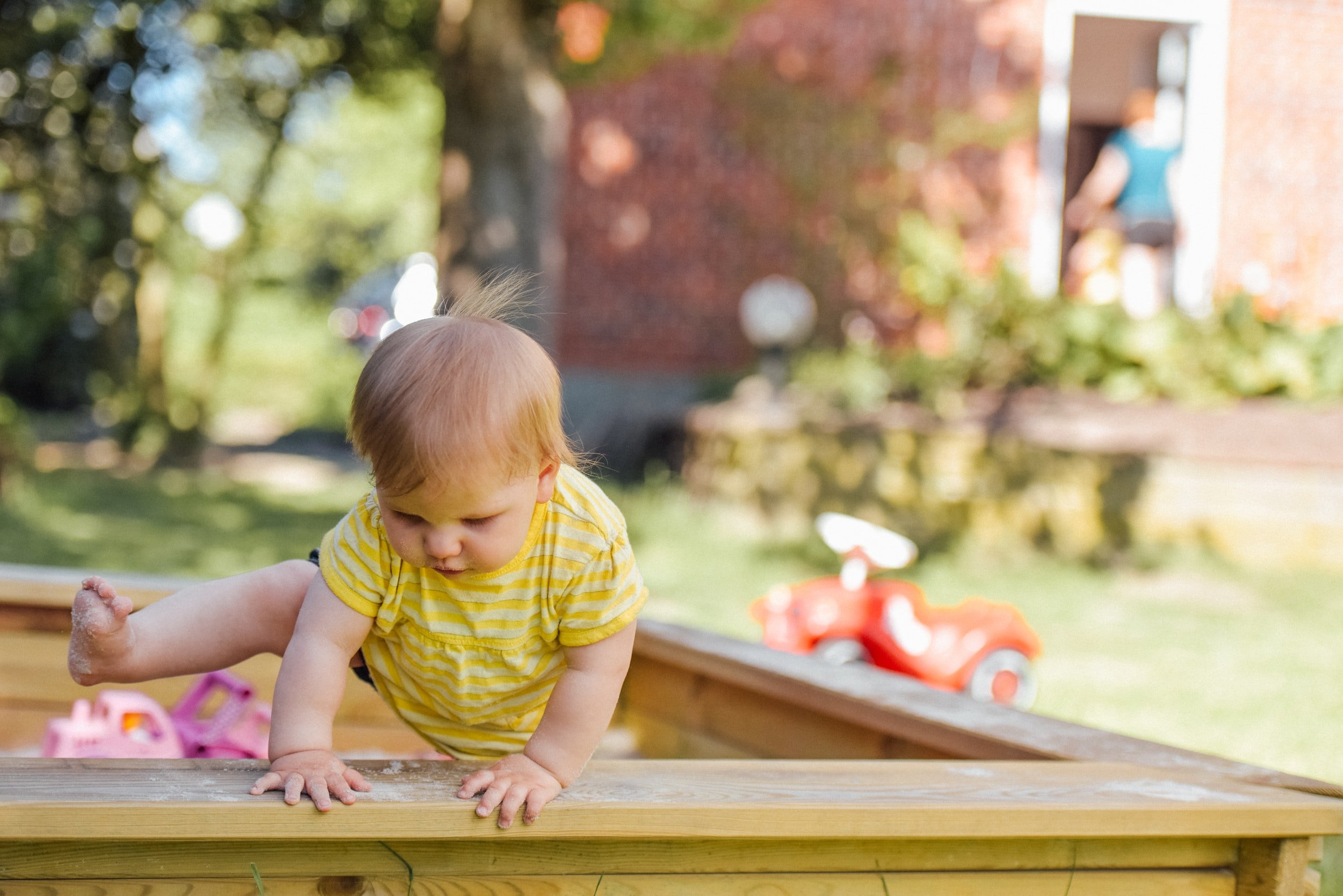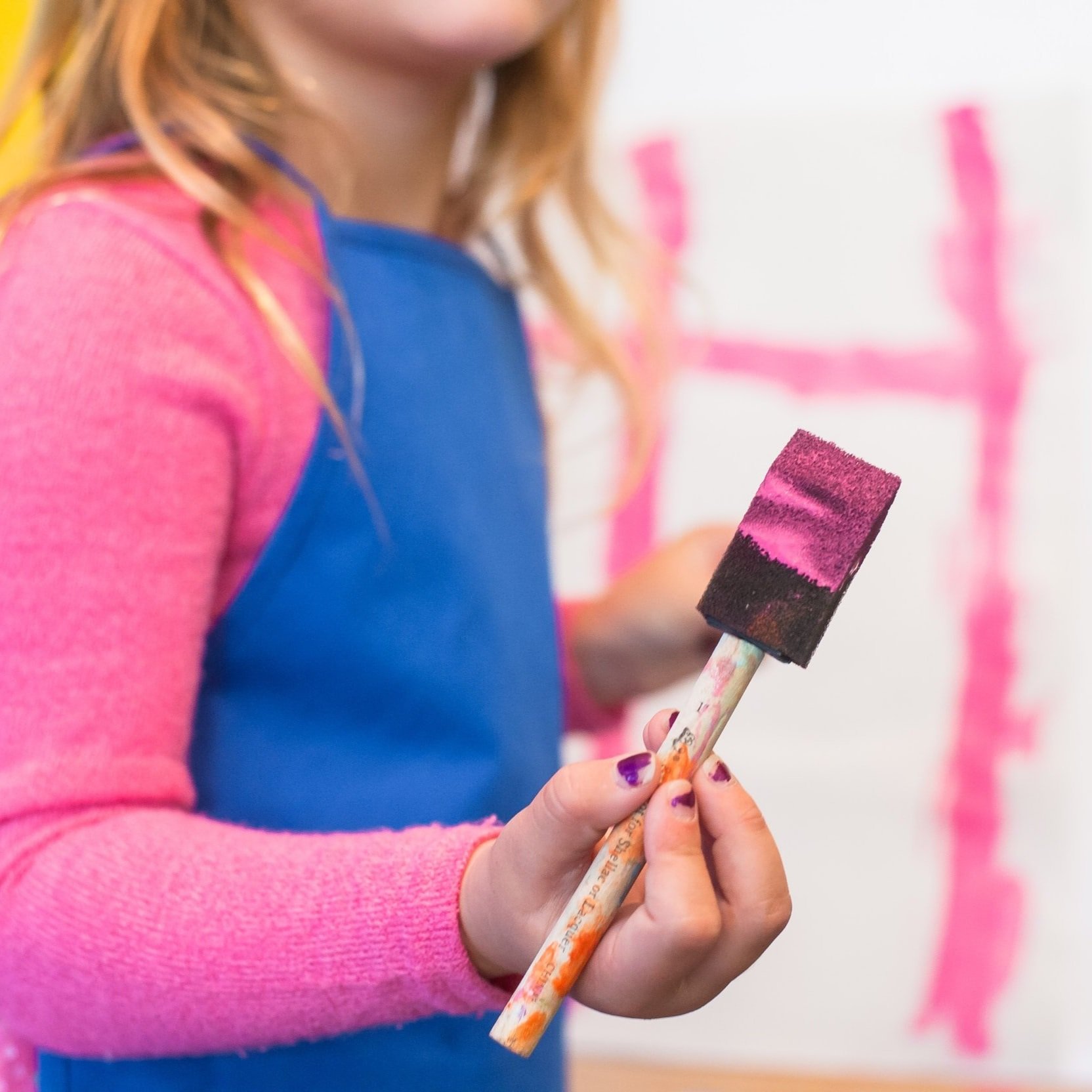I'm Rachael
Mom of 3 & Baby Sleep Expert with Big Sis Energy
& I’VE DONE ALL THE RESEARCH FOR YOU ALREADY.
Better sleep for the entire family
BROWSE COURSES
hey!
How To Talk so Little Kids Will Listen

BOOK REVIEW! A Survival Guide to Life With Children Ages 2-7 by Joanna Faber & Julie King
Overall Book – I would highly recommend this book!
After spending time with my best friend’s little girl the other day who is in the 12-24 month stage of development I had forgotten how much easier it all seemed when your child couldn’t verbally argue back. The emotions seem smaller or perhaps there is just less to wade through when trying to help. Whatever it boils down to, it just seemed easier then . In the pre-two year old phase you see the physical reaction, the body language and the mood change and that all seems somehow more manageable and less explosive but when you add in the verbal element of tantrums and the delicate art of negotiation (which seems to happen overnight when they turn two) then things just seem SO MUCH HARDER! That is where this book comes in. It is absolutely brilliant and I have pushed the book into my partner’s hand and all of my mum friends for tips and ideas to find your way through life with a 2-7 year old. The book is very in line with gentle parenting so any friends who choose to parent this way would really enjoy the message of this book.
Navigating life as a child is really tough. You are constantly learning new things, being exposed to new environments, being chivvied along and rushed and all whilst being expected to behave in the same rational and logical way as an adult. You aren’t in control of most of the choices in your life and the whole way and pace you experience the world is being dictated by someone else. If we applied this to our lives as adults we would definitely find ourselves in bad moods, resisting almost everything we were instructed to do, getting into power struggles and trying to assert some level of control and self autonomy. Within this book Faber and King paint a picture of how to navigate life whilst also trying to give space, time and control to your toddlers so that life can feel a lot more harmonious. As the authors say, “Kids are exhausting. Little kids are exceptionally exhausting. For me it’s more fun when we’re all tired and cheerful, instead of tired and irritable. These tools all help you achieve the former”.

Faber and King argue that “study after study has found that young children who are not constantly ordered around are much more likely to cooperate with simple requests from a parent—for example, cleaning up toys when asked—than children who are micromanaged and controlled much of the time.” So how do you go about achieving this when the world we live in is so fast paced and rushed and your toddler has ideas of their own about how they would like to spend their time. The overall premise of the book is to teach you how to acknowledge your toddler/child’s feelings, problem solve together and distance yourself from the path of punishment to facilitate a family setup that champions solutions over consequences. Two of the cornerstones of gentle parenting and gentle parenting discipline. The book is split into two parts. The first part of the book gives an overall view and builds you up a strong arsenal of tools you can adopt in situations and the second part of the book shows you the tools in action. Essentially it is split into theory and practice. I initially found myself wanting to skip ahead to the second part as if it would give me the magic answer to a smoother life with my toddler but as you delve deeper into the book you realize it is a way of life and as you adapt to this philosophy naturally you will find life with a toddler easier.
Part One
Tools for handling Emotions – ‘When kids don’t feel right, they can’t behave right’
This echoes the principles of gentle parenting and encourages us to work on our ability as parents to be with our child’s negative feelings in the same level of comfort that we are with their positive feelings. This is much easier said than done but there are some really useful tips, phrases and guidance as to how to achieve this. Whether this is with words, with art, with writing, in fantasy and with silent attentive attention. I really like the way they have incorporated different learning styles in the book. For example the pictorial representations of the above tips to help them stick in your head and the printable sheets to stick on your refrigerator to keep you constantly reminded.

Tools for Engaging Co-operation
This chapter is inspiring and exhausting in equal measure. We all have those days where we are full of beans and are able to make every single element of our toddlers day exciting and a game and then we have those days when we are in a rush or we are exhausted and we put less energy into making boring tasks fun and our toddlers resist daily life so much more. Well this chapter is exactly that! It’s a whole host of fun and interactive ways of engaging your toddler in daily life that puts them in the driving seat, makes them laugh and makes home life a little less tense. “The payoff for taking that extra step to engage our kids co-operations without orders, bribes and threats is enormous”. According to Faber and King children who are exposed to gentle parenting in this way are much more likely to co-operate in the long run and demonstrate more self control skills than children who have not been raised in this manner.
Tools for Resolving Conflict
Even though my daughter is only two I found this chapter fascinating and have already seen a huge difference in how she manages difficult situations both with her peers and in struggles at home. This chapter champions problem solving and engaging your child in helping to come up with solutions. It outlines ways of initially engaging your child in the process by allowing them to suggest fantasy problem solving solutions and then working together to find one that might work. As adults it is really hard to take our foot off the control but when we do and we genuinely give time and space to our child’s ideas I have been astonished at their ability to come up with suggestions and it has meant much less work for me. “The beauty of problem-solving is that, unlike punishment, it offers endless possibilities. If you’re committed to punishment and your child continues to misbehave, all you can do is punish more severely. You might hit him harder or take away more privileges, but chances are you won’t get any closer to your goal of having a cooperative child. And you’ll create a lot of ill will in the process. With problem-solving, you can always go back and brainstorm some more. When you put your heads together, you’re bound to come up with something that will work for both of you.”

With a foundational knowledge under your belt Davies guides the reader in Chapters 3 and 4 through activities and the initial set up of a Montessori home in order to empower and nurture your toddler’s uniqueness. As a parent I found these chapters inspiring but also challenging. Even with all the background education I have and my years as an Early Childhood Practitioner I still find it so hard to slow myself down. It somehow felt easier in the classroom at school to just watch, observe and listen. I had help and support and breaks. At home with my toddler there is just me. I’m exhausted from having no village, the washing needs doing, the dinner needs cooking and the house needs cleaning and I find it hard to tune that out to listen to the needs of my toddler and even harder to just observe. I forget to not question, not interject and find myself ‘just’ needing to do this and that. I’m restless and anxious as a person and find it difficult to slow down within my own daily life. So although these chapters encouraged and inspired me to try harder to take life at a slower pace, they also left me feeling inadequate as a parent. Yet as I delved into this I realised that what Davies explores in the book is the ultimate level. It’s mastery. I, like a Montessori toddler, am still learning the skills of slowing down and observing in this environment and I have tried to be kinder towards myself as I develop these skills. Modern life is so rushed, many of us don’t have support and although we may really wish to live the life depicted in the book it is incredibly hard to do this well. Some acknowledgement of it being a process would have perhaps allowed the reader to see themselves in the life being portrayed.
Tools for Praise and Appreciation

Although I know in theory that there are ways to praise a child that will help and ways that will hinder, it’s really hard to be so intentional in the moment. Much of what comes out of my mouth is subconscious and almost lazy. After reading this chapter I have been much more purposeful about the way that I praise my daughter and I have really noticed a difference. Resisting the urge to evaluate when we all grew up in a world where we were constantly tested is tough but when you are able to describe the process instead you really do empower your child. When my daughter has been doing sticky pictures or drawing this week I have been asking her to tell me about it instead of praising and she has been so excited to involve me in her creation. Describing the effect on others, describing effort, and describing progress are some of the other takehomes offered. This part of gentle parenting is one that I really have to work at and the way this chapter is broken down is the best description of useful praise that I have come across within the gentle parenting world.
Tools for children Who Are Differently Wired
I found this chapter really inclusive and was pleased to see that it had its own individual place in the book. Faber and King really championed knowing your child in the most connected way so that you can put in place the tools. Knowing what’s going on in their world instead of expecting your child to join yours, really empathizing and imagining what your child is experiencing and letting them know how much you want to understand, adjusting expectations and as always being playful. These are just some of the suggestions and it is packed full of a pick and mix of ideas of scenarios that may fit well into your home life.
At the end of this chapter Faber and King take a moment to acknowledge that although these tools and tips are reliably successful, as a parent you need to ensure that your child’s needs are met. That they aren’t experiencing a lack of sleep, lack of food, a need for recovery time, feeling overwhelmed or lacking the developmental or experimental readiness. Sometimes it is easy to overlook these needs and wonder why our child is having such a tough time.

Part Two
The second part of the book is really enjoyable. It feels as though you have sat down with a large cup of coffee with a group of parents to vent, laugh, share success stories and failures in a really supportive and encouraging environment. It leaves you feeling inspired in your parenting journey and empowered to make the necessary changes for a smoother, less hostile home environment. The stories are short and digestible and really relatable and after having equipped yourself with the tool kit from the first half of the book you feel as though you can go along with the parent and think about what you could do differently but empathize with the exasperation the parent may be experiencing. I listened to the second half of the book and I would highly recommend doing that as I did genuinely feel like I was partaking in a coffee morning! There was however one small section on baby and toddler sleep that didn’t align with my values and didn’t seem to me to be in line with the rest of the ethos surrounding children’s feelings. The authors do however state that parents must do what they feel comfortable with and that they do not feel in a position to advise on how to deal with this element of parenting. We should leave that to Rachael at Hey Sleepy Baby!

Overall
This book was a brilliant, thought provoking and inspiring read that I would recommend to any parents. I think it should be given to first time mums in preparation for what is to come and to prepare themselves and practice before they are in the thick of it with a toddler and to anyone who either practices gentle parenting or wants to practice gentle parenting and is looking for some guidance!
Was this helpful? Save it for later!
binge reads
We think you'll love these
You deserve to the
baby stage, not just "survive it."
And you DON'T have to sacrifice your values, ignore your instincts, or force yourself to follow a method you don't align with just to get your baby back to sleep.
I’m here to help you create a restful, sustainable sleep environment that honors both your baby’s needs AND your own (without the stress OR the guilt!) because, no, you don’t have to choose between the two.
enjoy!
BABY SLEEP COURSES →
BABY SLEEP CONSULTS →
Wish you could help your baby sleep better without resorting to sleep training? Download my FREE guide to a good night’s sleep and learn 8 simple, science-backed tips for supporting your child’s needs.
Traditional sleep training methods don’t have to be your solution to better sleep.
SLEEP TRAINING ISN’T THE ONLY WAY TO GET GOOD SLEEP
Hey, I'm Rachael and Hey, Sleepy Baby is for parents who want to get their nights back, without sleep training their babies.
NO ONE TOLD US POD
explorING the untold truths of parenting



